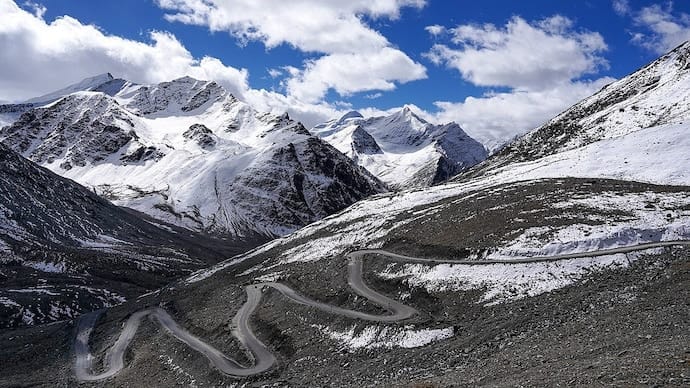India has accelerated its pace of infrastructure development since the government launched its Prandan Mantri Gati Shakti National Master plan three years ago, but industry leaders at the Indian Construction Festival held in Mumbai earlier this month noted that more must be done to ensure projects are not just built quickly, but built well.
The $1.2-trillion master plan, launched by the government of India Prime Minister Narendra Modi in 2021, includes an intermodal mix of road, railway, airport, and port and waterways projects aimed at spurring increased economic development across the country. He recently described the master plan as “a transformative initiative aimed at revolutionizing India’s infrastructure” that will drive “faster and more efficient development across sectors,” in a public statement.

A former official from the Indian Army’s Border Roads Organization highlighted both recently completed projects, including the 298-km Nimum-Padam-Darcha Road high in the Himalayan Mountains, pictured above, and those in the pipeline, at the Indian Construction Festival in Mumbai Oct. 9-10.
Photo courtesy of Indian Border Roads Organization
At the Oct. 9-10 construction industry conference, Vipin Sondhi, an independent director of the FIRST Construction Council, a non-profit think tank in Mumbai, said the nearly $24 billion of highway construction put in place in fiscal 2023 was up 20% over the previous year. “The commitment of the government is there,” said Sondhi, a veteran former CEO of various automotive and construction equipment industry firms in India, including JCB and Ashok Leyland.
Over the past decade, India has built more than 55,000 km of highways and roads, and the country has the world’s second-largest network of highways, according to conference organizer Pratap Padode, founder of India’s FIRST Construction Council and publisher of several Indian construction publications. But Padode cautioned that while a heightened focus on crucial infrastructure is a boon for firms, entrenched corruption and other systemic problems must be addressed as well.

Pratap Padode, FIRST Council Founder and publisher of several Indian construction magazines, noted the challenges that persist in building out the trillions of dollars in major transportation projects across India.
Photo Courtesy of ASAPP Info Global Group
While many deaths and accidents on roads are not necessarily related to how they are designed and built, in some cases “poor and thoughtless road engineering” is a factor, Padode said.
One key problem is “inadequate and faulty” preparation of standard surveys, environmental reviews, hydrology reports and other analyses that are part of the detailed project reports, called DPRs. In some cases, inaccurate data in studies and surveys are adding to project costs. Additional problems include delays in land acquisition and lax project oversight.
“We need to speed up. We need to shape up. We need to reinvent ourselves to provide the best,” he said.
While several speakers acknowledged existing challenges to building major infrastructure projects in India, they also noted efforts by firms and government agencies to improve.
The ex-director general of the Border Roads Organization, now-retired Lt. Gen. Rajeev Chaudry, detailed its efforts to make project procurement and payment more transparent and efficient. He attributed some of the advancements made in recent years to India’s national online procurement portal, called Government e-marketplace, which was launched in 2016 and now is set to become the world’s largest government procurement platform.





